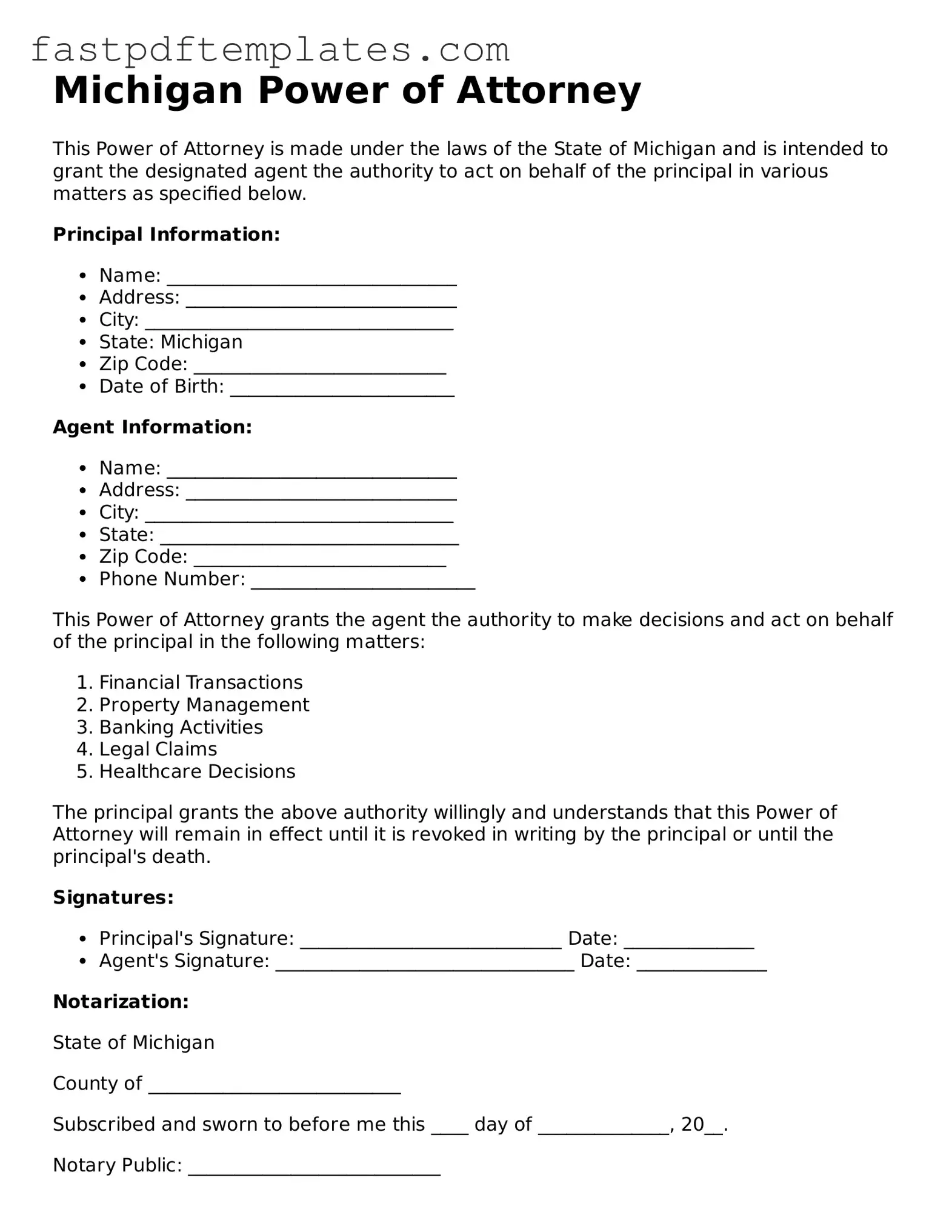Attorney-Approved Michigan Power of Attorney Document
The Michigan Power of Attorney form is a legal document that allows an individual to appoint someone else to make decisions on their behalf. This form can cover various aspects, including financial and medical matters, ensuring that the appointed person can act in the best interest of the individual. Understanding the nuances of this form is essential for effective planning and decision-making.
Access Document

Attorney-Approved Michigan Power of Attorney Document
Access Document
Your form still needs completion
Complete your Power of Attorney online and download the final PDF.
Access Document
or
Click for PDF Form
